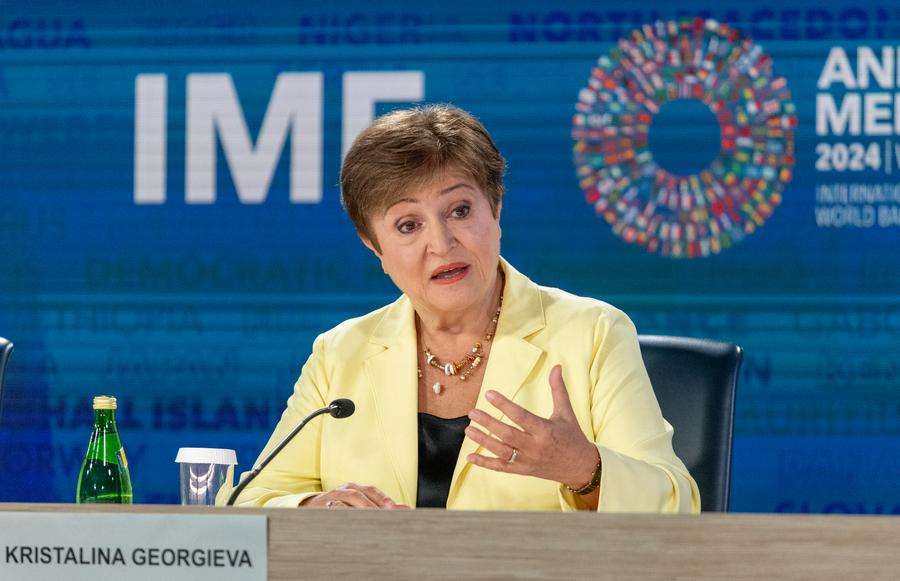WASHINGTON - The International Monetary Fund (IMF) has warned that the global economy is at risk of being stuck on a path of low growth and high debt and urged policymakers to act on debt and implement pro-growth reforms.
"The global economy is at risk of being stuck on a path of low growth and high debt, which means lower incomes and fewer jobs. It also means lower government revenues, meaning less investment to support families and combat long-term challenges like climate change," said the Managing Director of the IMF Kristalina Georgieva at a press conference during the ongoing IMF-World Bank Group 2024 Annual Meetings.
Georgieva first called on policymakers to ensure that inflation everywhere returns to target, noting that the trick for central banks now is to "finish the job of dealing with inflation without unnecessarily damaging the labour market".
Second, "now is the time to act on debt and deficits after years of much needed fiscal support in response to the shots. Now is the time to restore fiscal buffers in most countries. This can be done gradually, but it needs to start now," she continued.
Third and most importantly, she said, countries need to implement pro-growth reforms, from cutting red tape to improving governance, noting that IMF analysis suggests that these reforms can increase output by 8 % in developing countries over four years.
In its latest World Economic Outlook (WEO), released on Tuesday, the IMF maintained its forecast for global growth in 2024 at 3.2 %, in line with its July projection. The five-year growth outlook remains lacklustre at 3.1 per cent, the lowest in a decade.
Advanced economies are expected to grow by 1.8 per cent this year, while emerging markets and developing economies are expected to grow by 4.2 per cent. China's economy is projected to grow by 4.8 percent.

Responding to a question from Xinhua, Georgieva told a press conference that the IMF will have to carefully assess the measures recently announced by the Chinese authorities to determine exactly what their impact will be, while noting that "there are measures that go in the right direction".
The IMF chief noted that China has been facing a crossroads for some time: to pursue an export-led growth policy or to increase domestic consumption and shift the engine of growth to the Chinese consumer. "We are of the view that since the Chinese economy has grown so much, the other option, domestic consumption, is a reliable source of growth," she said.
In the short term, one of the big obstacles to consumer confidence is the real estate sector, and decisive action to tackle it would help boost consumer confidence, she said.
As for the future, "welfare and pension reform that gives people the confidence that they don't have to save excessively, that they can rely on the system, would mean that they would spend more," she continued.
"If we took sectors of the economy that are somewhat underdeveloped from a consumer perspective, like health care, education, elder care, and made services a bigger driver of growth, that would help," she said, adding that she was sure China's leadership was looking into these possibilities.
Xinhua/ gnews - RoZ
PHOTO - Xinhua/Hu Yousong



